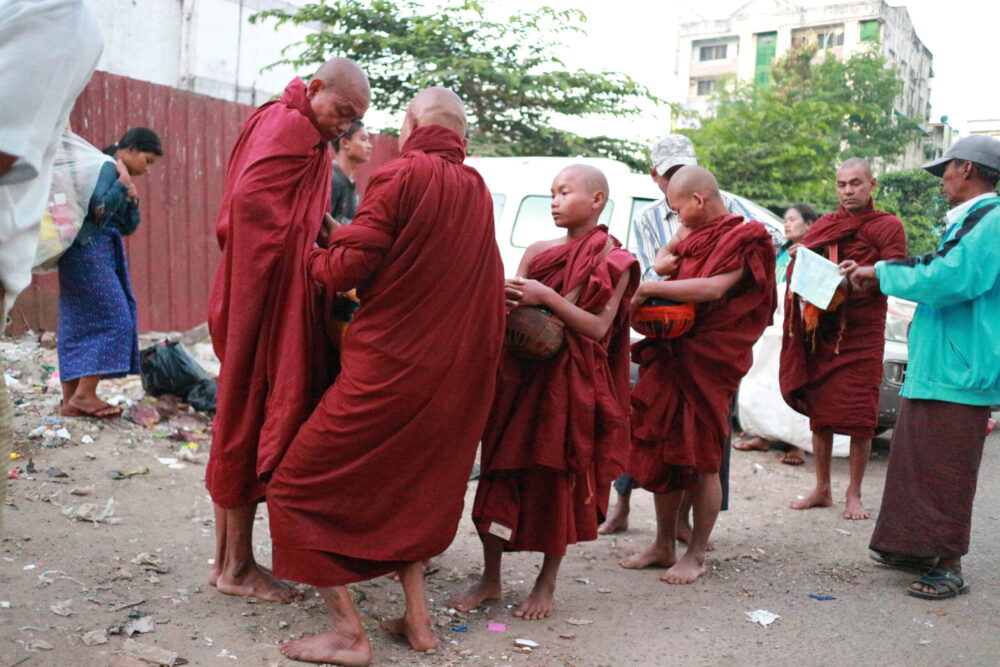[ad_1]
Bangladesh is not doing enough to protect Rohingya from increasing violence by armed groups and criminal gangs operating in the refugee camps near the country’s border with Myanmar, Human Rights Watch said on Thursday.
Some of these stateless refugees who fled from persecution in Myanmar’s Rakhine state are all the more vulnerable because Bangladeshi authorities force them to act as informants against criminal elements, the New York-based watchdog alleged in a new report.
“Prime Minister Sheikh Hasina’s past pledges to protect Rohingya refugees are now threatened by violent groups and an indifferent justice system,” said Meenakshi Ganguly, deputy Asia director at Human Rights Watch (HRW).
In response, the Bangladesh government and security officials acknowledged the difficulty of policing the camps in Cox’s Bazar, a southeastern district where close to a million refugees live, but said they were doing their utmost to ensure safety. They also denied they were forcing anyone to act as informants.
HRW said it had documented 26 cases of violence against Rohingya, including murder, kidnapping, torture, rape and sexual assault, and forced marriage between January and April 2023.
“Authorities have been forcing Rohingya leaders to serve as informants, putting them at grave risk of being abducted or killed, without access to protection,” Human Rights Watch said in its report, adding that it interviewed 45 Rohingya and gathered supporting evidence, including police and medical reports, for its report.
Of the refugee population of nearly 1 million, about 740,000 Rohingya fled their home state of Rakhine for neighboring Bangladesh amid a brutal military crackdown in 2017.
Refugees told HRW that rebel groups such as the Arakan Rohingya Salvation Army (ARSA) and the Rohingya Solidarity Organization (RSO), and criminal groups such as the Munna gang, were the perpetrators of increasingly brutal crimes in the camps.
“Several majhis [community leaders] who were killed or attacked over the past year were targeted by alleged ARSA members who considered them informants for Bangladesh authorities,” the HRW report said.
“Majhis said that authorities forced them to take part in nighttime watches, to join police raids, and to identify members of armed groups, at times in front of the suspects.”
Rohingya cannot seek redress from police or courts when they have been victims of a crime, the report also said.
‘“Instead, they must approach Bangladesh administrative authorities or security forces in the camps. Several families said they could not get the required approval from the camp-in-charge, a Bangladesh official, to file a report with the police,” HRW said.
“Others said they obtained permission to bring a complaint to the Armed Police Battalion (APBn) but could go no further, as the force has no civilian investigative function. Refugees who did manage to register their case at a local police station said there was no follow-up, often because they could not cover the bribes and legal fees demanded.”
‘We face many challenges’
Providing full security in the sprawling but dense camps is a tough task, the government and the Armed Police Battalion said.
Bangladesh Home Minister Asaduzzaman Khan Kamal said that a large number of people, whom he described as terrorists, were responsible for criminal acts in the camps.
“While working for the security of the Rohingya, sometimes the members of our forces are also in danger,” he told BenarNews.
“It is not very easy to deal with the way crimes are being committed inside the camps. We have to gain a lot of momentum to fight it.”
He denied that the Rohingya had no access to the police or courts.
An ABPn Superintendent, whose battalion patrols in the Cox’s Bazar area, expressed similar sentiments.
“Being a densely populated area, we face many challenges in carrying out our duties in the camps. Yet we are carrying out our duties risking our lives,” said 8-APBn Superintendent of Police Farooq Ahmed.
He denied the police had forced any refugee to become informants for law enforcement.
“Many times the Rohingya leaders keep in touch with the law enforcement agencies for the sake of the security of their people,” he told BenarNews.
BenarNews is an RFA-affiliated online news service.
[ad_2]
Source link



















